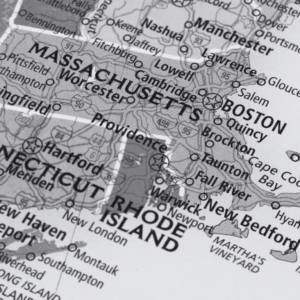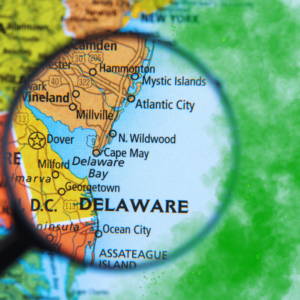NC Senate OKs Medical Cannabis, GOP Support Needed in House

The North Carolina Senate has approved a bill that would legalize medical marijuana, though its prospects of passage remain uncertain in the House, where the reform has consistently stalled due to a lack of majority support within the Republican caucus.
Last week, bipartisan senators agreed to attach the medical cannabis proposal to a hemp- and kratom-related measure, advancing it through committee and on the floor for an initial vote. The bill passed on third reading in a 36-10 vote on Monday, sending it to the opposite chamber.
House Support Uncertain
There hasn’t been a clear indication of what the House might do with the bill. Speaker Tim Moore (R) reiterated in an interview released on Sunday that he personally supports legalizing medical marijuana but added that the informal rule in his chamber is that at least 37 GOP members must back any given bill for it to be brought to the floor. He did not specify whether the legislation at hand has reached that threshold.
Legislative Maneuvering
By tying medical marijuana to the broader hemp and kratom bill that originated in the House, the Senate is exercising a unique legislative maneuver to try and get the job done. As revised with last week’s committee amendment from Sen. Michael Lazzara (R), the bill would allow doctors to recommend medical marijuana to patients with certain qualifying conditions. This is in addition to the original provisions on restricting kratom and intoxicating hemp cannabinoid products such as delta-8 THC.
Personal Advocacy from Senator Rabon
The cannabis text is similar to a standalone bill from Sen. Bill Rabon (R), a cancer survivor who has sponsored multiple medical marijuana proposals. Rabon has emphasized his personal experience in advocating for the legislation. He disclosed that his doctor advised him to use marijuana before he underwent serious chemotherapy, leading him to acquire marijuana illegally to manage his symptoms.
Speaker Moore’s Position
While Moore, the House speaker, told WCNC, “personally I support medical cannabis,” he didn’t confirm whether there was enough support among his Republican colleagues to bring it to a floor vote. “I think it ought to be something that’s properly supervised—properly regimented—and, as a type of care, that it should be an option for those folks who want to do that,” he said. However, he remains opposed to recreational use, citing potential problems.
Previous Legislative Efforts
Moore previously downplayed the idea of enacting medical cannabis legislation, saying at one point that “there are a lot of concerns” with Rabon’s bill that moved through the Senate. Prior to approving the bill on Monday, senators adopted several amendments to address specific concerns.
Key Components of the Bill
Here are the main components of the medical cannabis provisions of the bill:
- Patients would be allowed to access cannabis if they have a “debilitating medical condition” such as cancer, epilepsy, HIV/AIDS, Parkinson’s disease, multiple sclerosis, and post-traumatic stress disorder.
- Smoking and vaping would also be allowed, but doctors would need to prescribe a specific method of delivery and dosages for patients under the revised legislation. They would need to reevaluate patients’ eligibility for the program at least once a year.
- The bill provides for up to 10 medical marijuana suppliers who control the cultivation and sale of cannabis.
- A Compassionate Use Advisory Board would be established to add new qualifying medical conditions.
- A Medical Cannabis Production Commission would be created to ensure an adequate supply of cannabis for patients, oversee licensing, and generate revenue to regulate the program.
- The measure would further create a North Carolina Cannabis Research Program to conduct scientific research on cannabis as part of medical treatment.
Legislative Amendments
One amendment states that “if marijuana is rescheduled or deleted as a controlled substance under federal law, marijuana shall not be rescheduled or deleted” under state law “unless the General Assembly enacts legislation.” Other approved amendments to the consumable hemp portions of the legislation clarify provisions on serving sizes for liquid products, verifying customers’ legal age, and restricting marketing materials appealing to those under 21.
Potential Impact and Advocacy
The Senate President Pro Tempore Phil Berger (R) mentioned that there have been bicameral discussions about moving the medical marijuana proposal forward as part of the hemp measure. Certain Democratic senators, such as Sen. Graig Meyer (D), have called for future proposals to include “some type of decriminalization language” alongside the medical cannabis program. House Majority Leader John Bell (R) noted last year that there were ongoing discussions about the medical marijuana bill but that it lacked sufficient support among Republicans.
Previous Attempts and Current Advocacy
A previous version of the North Carolina Compassionate Care Act from Rabon passed the Senate but did not receive a vote in the House of Representatives in 2022. Rabon also included medical marijuana regulatory appointments for the yet-to-be-enacted program in a separate measure that passed the Senate in March.
Statewide Developments
An Indian tribe in North Carolina launched the state’s first medical marijuana dispensary in April, despite protests from certain Republican congressional lawmakers. Sens. Thom Tillis (R-NC) and Ted Budd (R-NC) asked federal, state, and local officials about steps they were taking to enforce marijuana prohibition ahead of the tribe’s launch.
Judicial Actions
A state judge in February declared that anyone who “has the odor of marijuana” will be barred from entering the North Carolina Superior Courts of Robeson County. The order from Senior Resident Superior Court Judge James Gregory Bell stated that smelling like cannabis is grounds for removal from the courthouse.
As the bill moves to the House, its fate remains uncertain. The ongoing debate highlights the complex dynamics of medical marijuana legislation and the evolving perspectives on cannabis policy in North Carolina.











